Once we returned from our field immersion in Marinduque, we had two days off. Lukas, Abi, and I did a little bit of exploring around Metro Manila. Below are a few pictures from our day. We were able to try different coffees, lemonades, gnocchi, pizza, and much more. When we visit Makati, BGC, and other cities in the business district of Manila, we are able to find restaurants that kind of remind us of places that we have in the United States. Although we loved the traditional Filipino food that we tried in Marinduque, this was a great change in pace from the typical Filipino meals that we had been eating. After we took a day to explore and relax, we had to do laundry and pack for our second field immersion in Pangasinan.
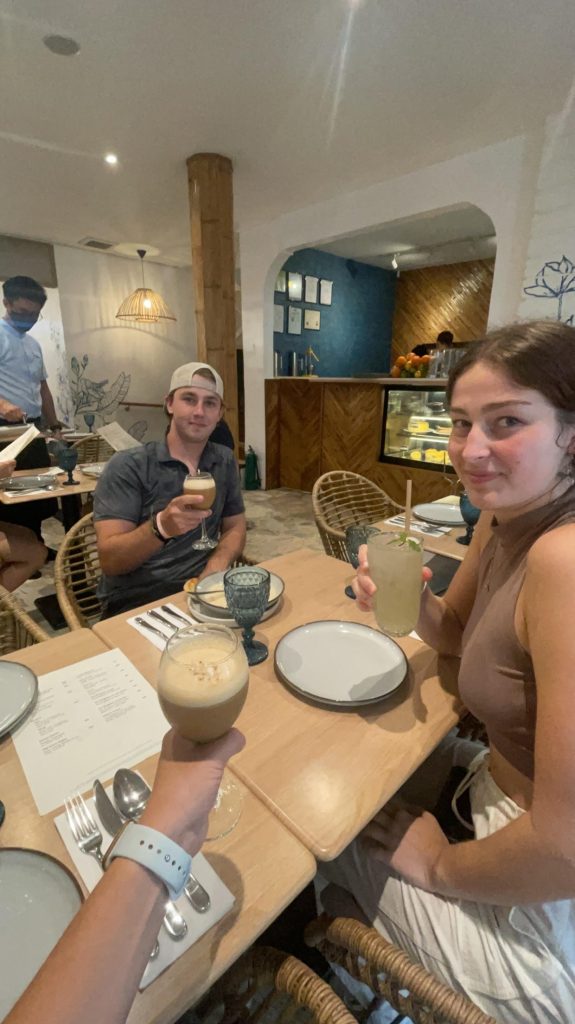
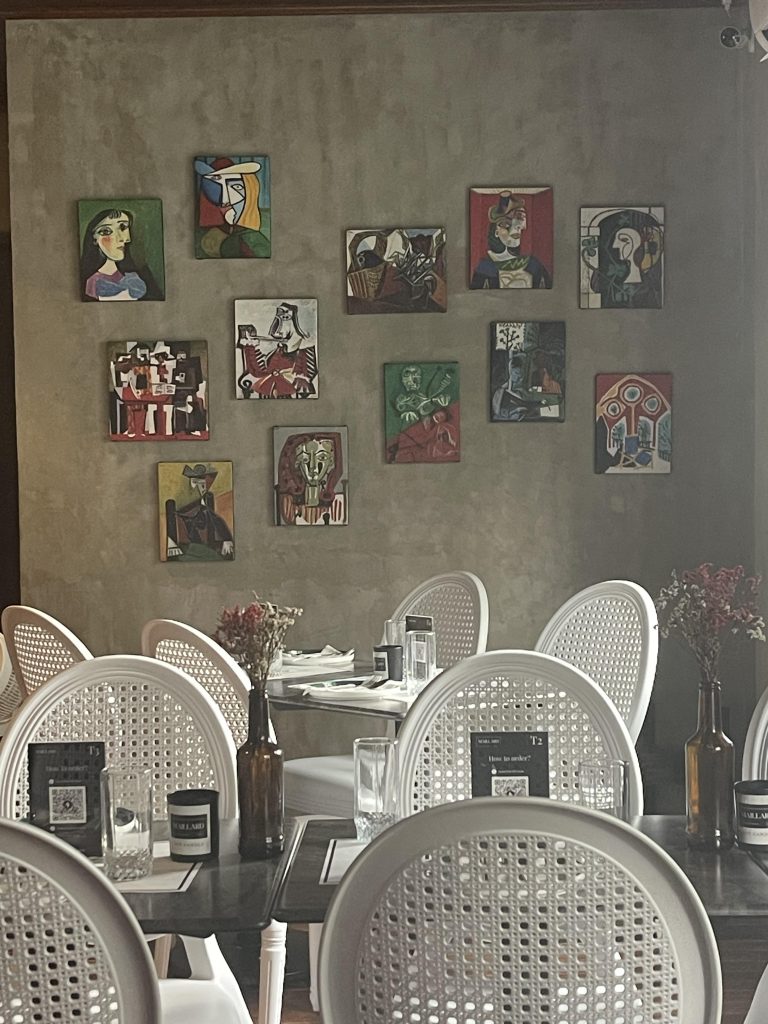
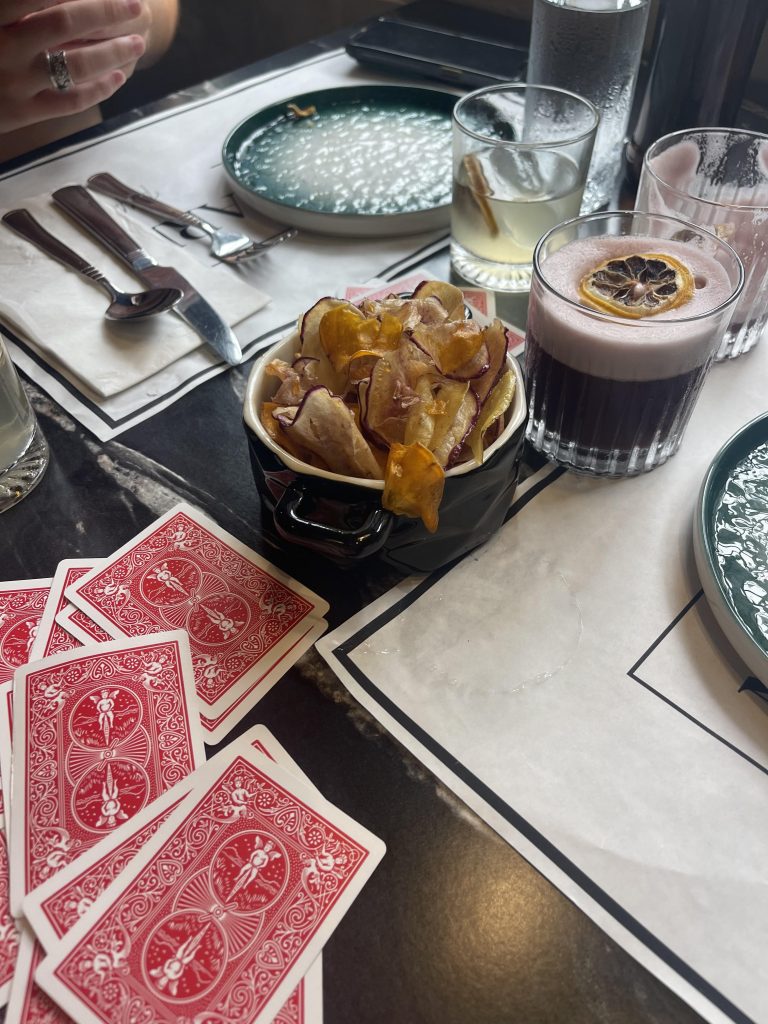
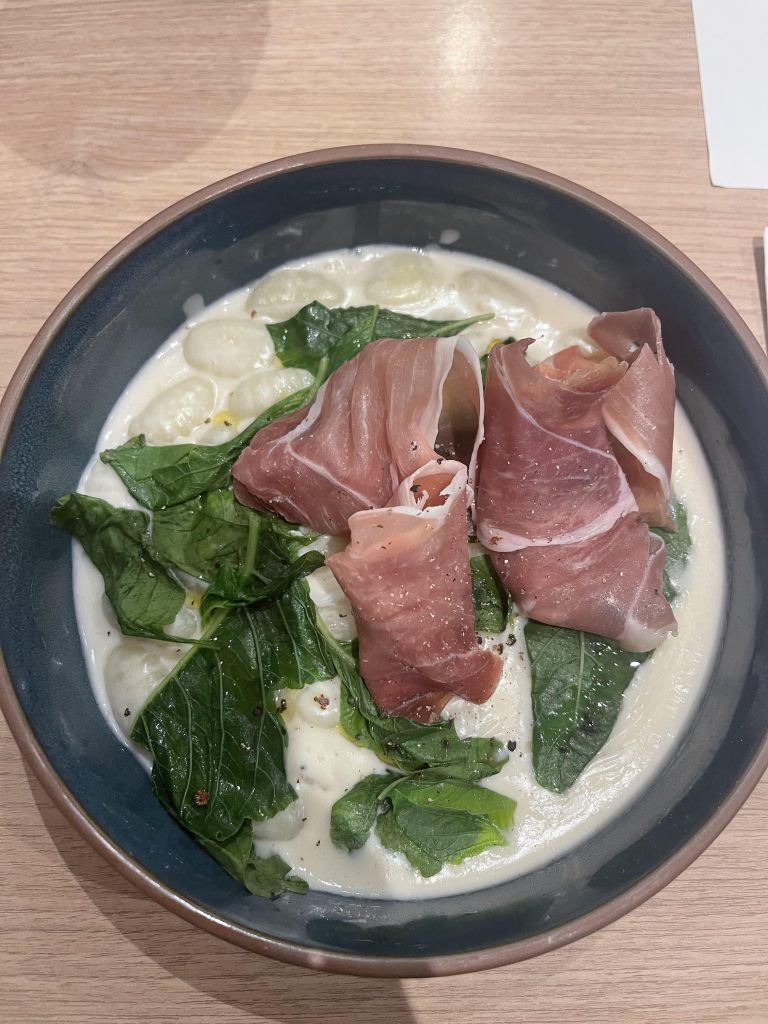
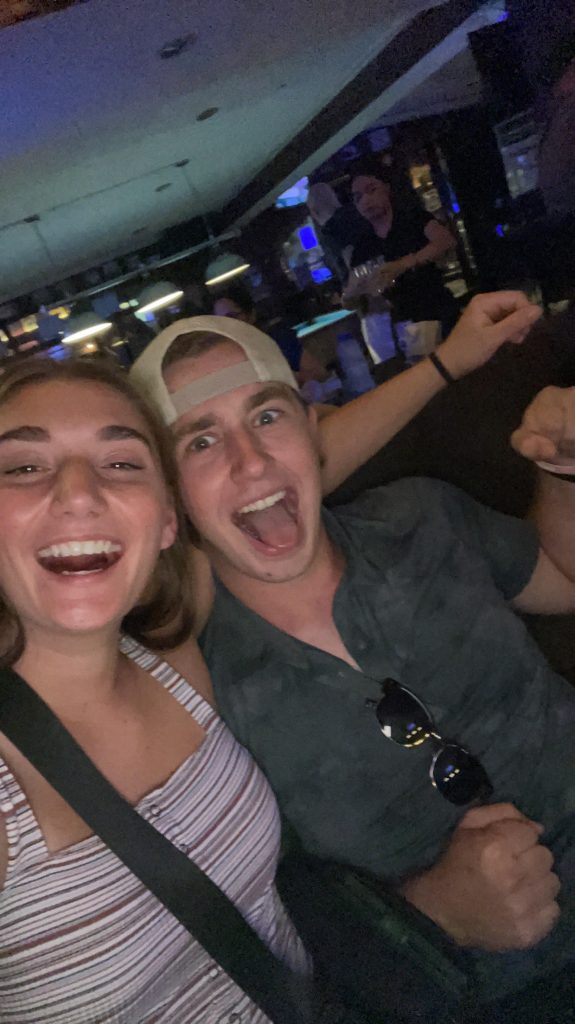
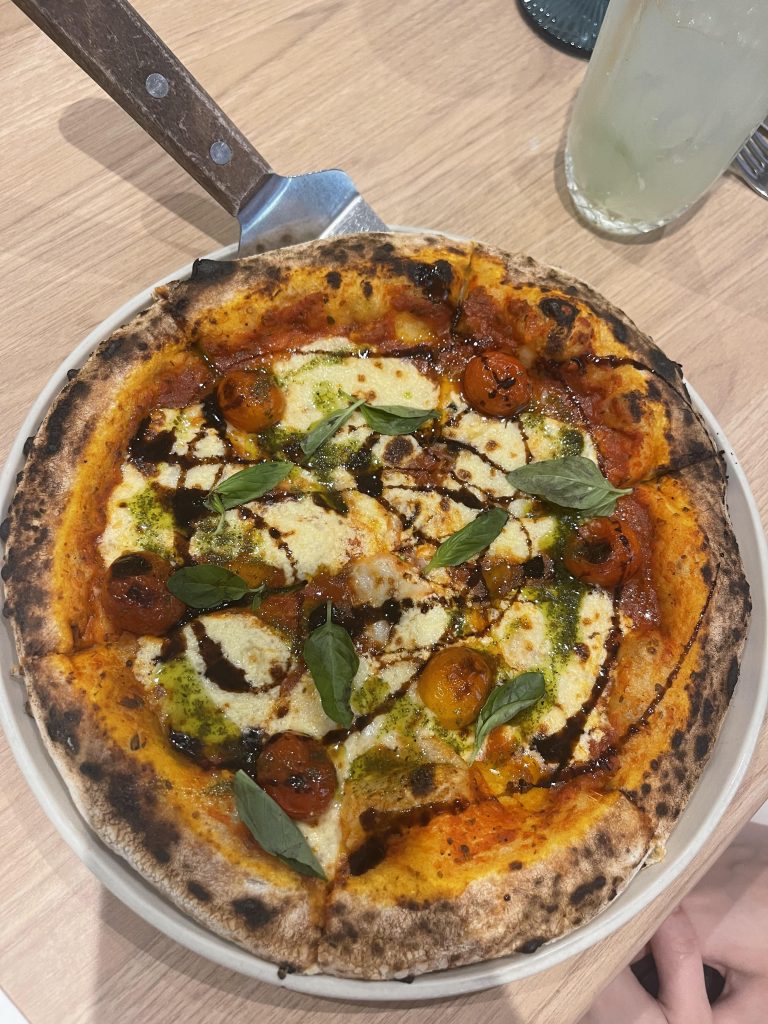
After our two off days, we were ready for our second round of sleeping on the floor and taking bucket showers! Our second field immersion was in Pangasinan, Philippines. We were able to stay with Sir Erwin’s sub team in the Tobor Barangay. We felt so incredibly welcomed from both Sir Erwin’s team and the people of the Barangay. Some of the Barangay officials cooked all of our meals for us and offered us coffee and snacks throughout the day. Everyone in Pangasinan was so excited to have visitors and meet foreigners. There was a group of teenage girls who were jumping and screaming when they first saw us and asked for pictures. We then were able to get to know them and spend some time with them. I am not being dramatic when I say that I have never taken that many pictures in my entire life. We easily took upwards of 1,000 pictures with locals during our time in Pangasinan. We were able to play pickup basketball and get milk tea during our free time.
I had the opportunity to interview a 17 year old boy about his mental health. He was so friendly and very patient with me as I navigated my way through the questionnaire. Ate Gwen, one of the researchers from Sir Erwin’s team, helped translate my English. She was so kind and helpful and I loved having the opportunity to learn from her. Sir Erwin and Ate Gwen also let me practice taking blood pressure, and I felt much more confident with hearing the sounds and accurately recording blood pressure. We then walked to another household and observed Ate Bridget conduct a 24 hour food recall and food weighing. The purpose of the food recall and food weighing is to estimate the amount of food and the variety of food that a household consumes in a typical day. Unfortunately, many Filipinos have nutrient deficiencies such as iron deficiency, iodine deficiency, vitamin E deficiency, protein deficiency, and many more. Some Filipinos consume enough energy, but not enough of specific micro or macro nutrients. Others do not consume enough energy overall. Approximately three in ten Filipino households suffer from moderate to severe food insecurity.
We were also able to closely observe the process of biochemical sample collection. The med tech explained to us how she collects a small sample of the respondent’s blood and how it is analyzed once it gets to the lab. Some of the tests include (but are not limited to) hepatitis testing, blood iron level testing, blood vitamin E level testing, fasting blood sugar testing, and blood iodine level testing. Once this date is analyzed, Filipino lawmakers can implement the findings into legislation. For example, a few years ago, the most common deficiency among Filipinos was iodine, so a new law was enacted that requires that all salt be iodized. After this law was enacted, the prevalence of iodine deficiency among Filipinos has drastically decreased. Below are some pictures of us at some of the households. Everyone was so friendly and happy to participate in the National Nutrition Survey. The researchers also ask each household for a salt sample so that they can test it to make sure that it is iodized.
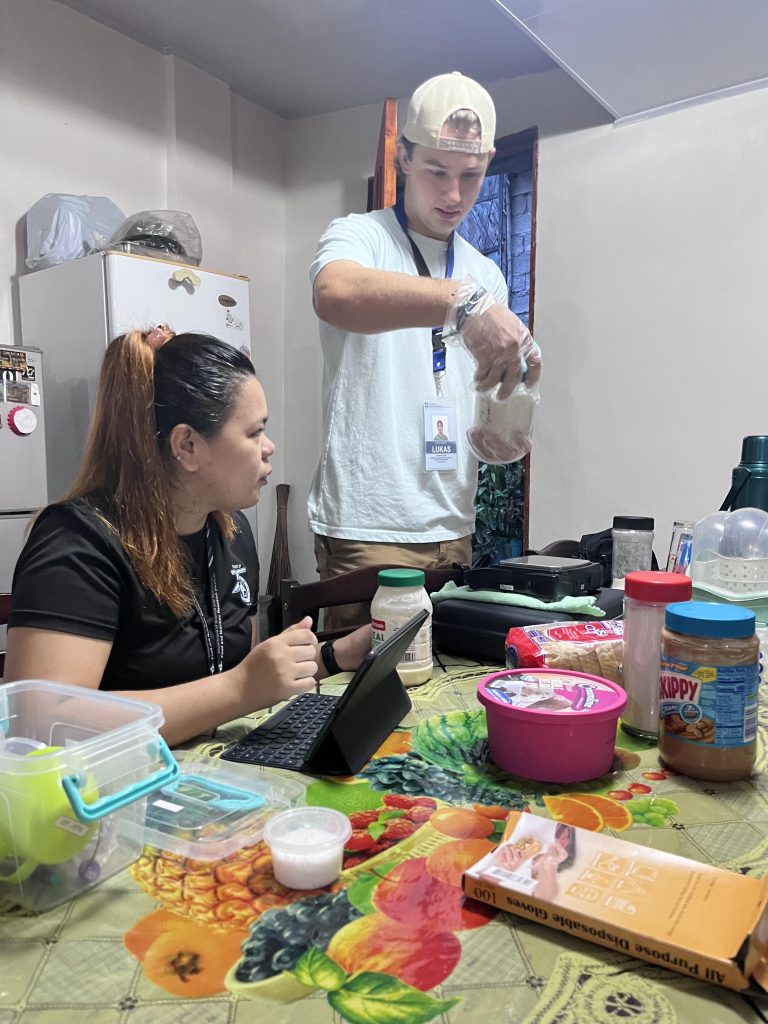
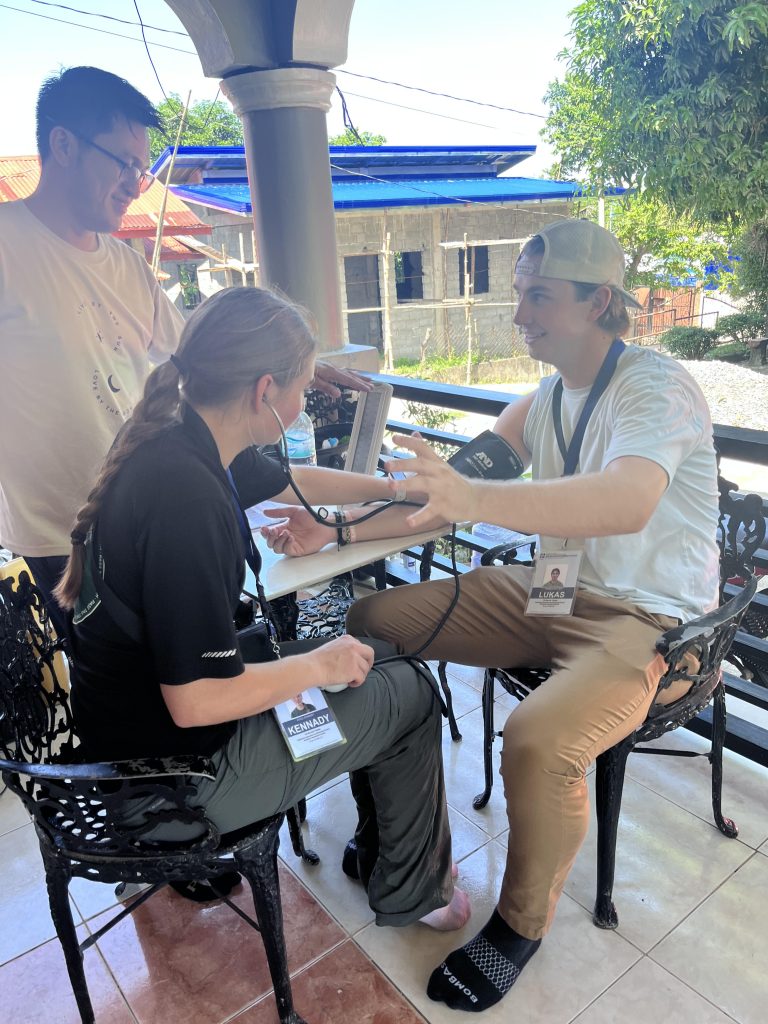
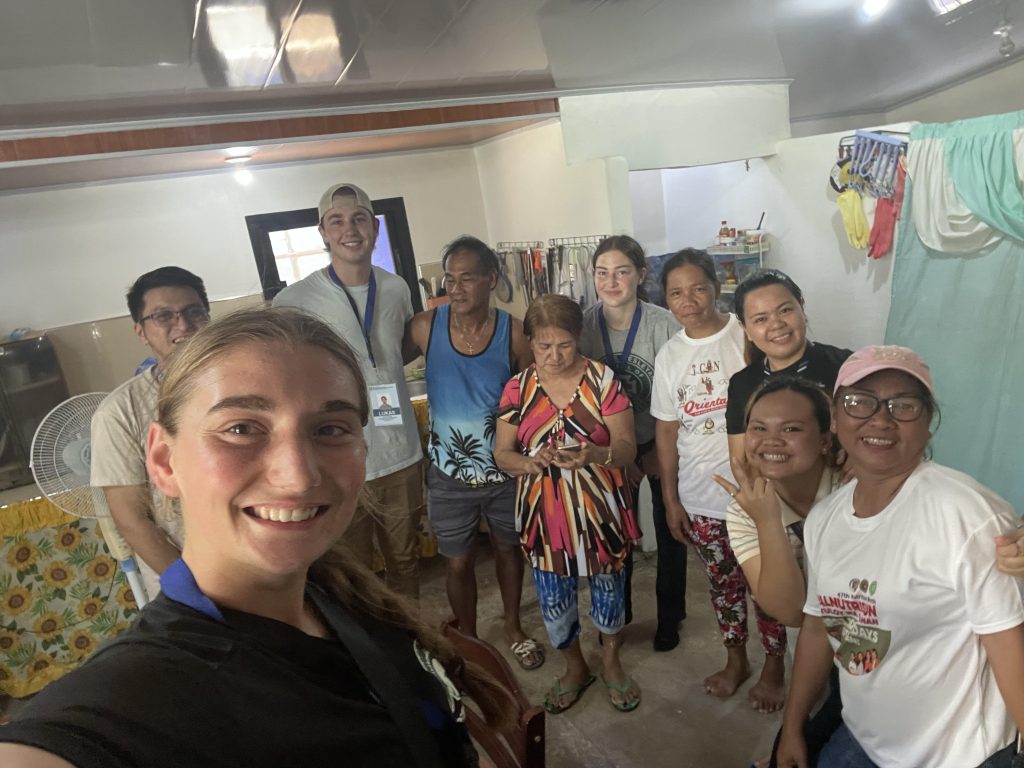
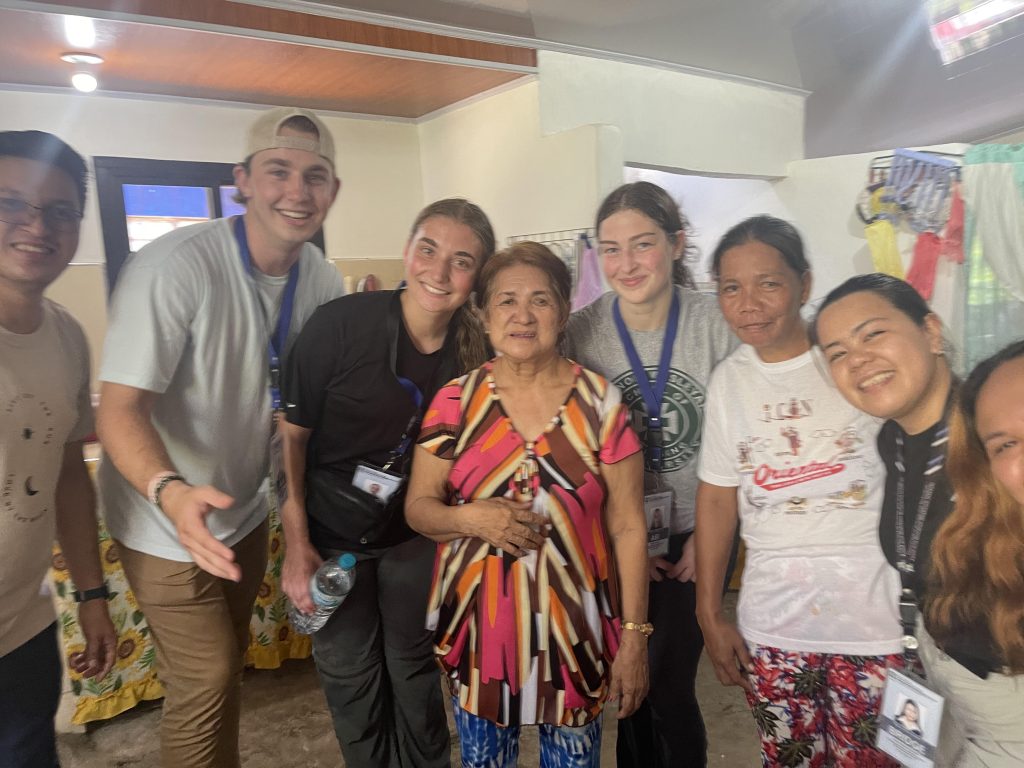
As previously mentioned, the people that we met in Pangasinan were so kind and accommodating. One of the households that participated in the survey made us Pansit noodles and bought us bread. Pansit is one of my favorite foods that I have tried so far in the Philippines. Another family offered to take us on motorcycle rides. Sir Brian took me on a 30 minute motorcycle ride and showed me some of the local rice farms. We were also asked to be in so many pictures! We met a group of teenage girls who were so sweet and asked us for our social media accounts so that they could stay in touch with us.
For our second night in Pangasinan, the mayor bought us a hotel room to stay in for the night and we were able to swim. We also had the opportunity to try street food! Lukas and I each tried chicken liver, chicken kidney, chicken head, chicken intestine, chicken feet, chicken anus, pig’s blood, balut, and crickets. It was very interesting and had a very weird texture, but I am glad that I at least was able to experience trying these different street foods. My least favorite thing I tried was probably Balut. It is a fertilized duck embryo (the balut egg that I tried was 16 days old). For our last night in Pangasinan, the Barangay members made us so much food and we ate it with our bare hands off of banana leaves. This is called “boodle fight.” This meal was easily the best Filipino meal that I have had so far! We had milkfish, tilapia, egg rolls, chopped suey, cucumbers, tofu, and of course rice. After we ate, the locals taught us several popular dances. Below are pictures of the various foods we tried, people we met, and our motorcycle rides!
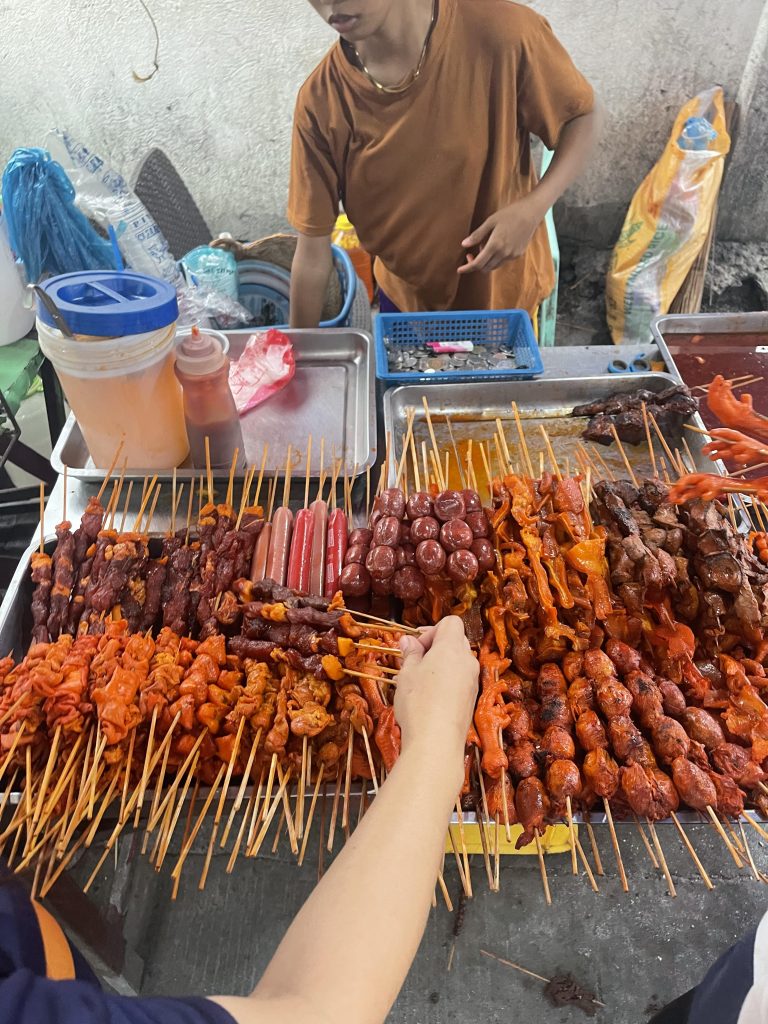
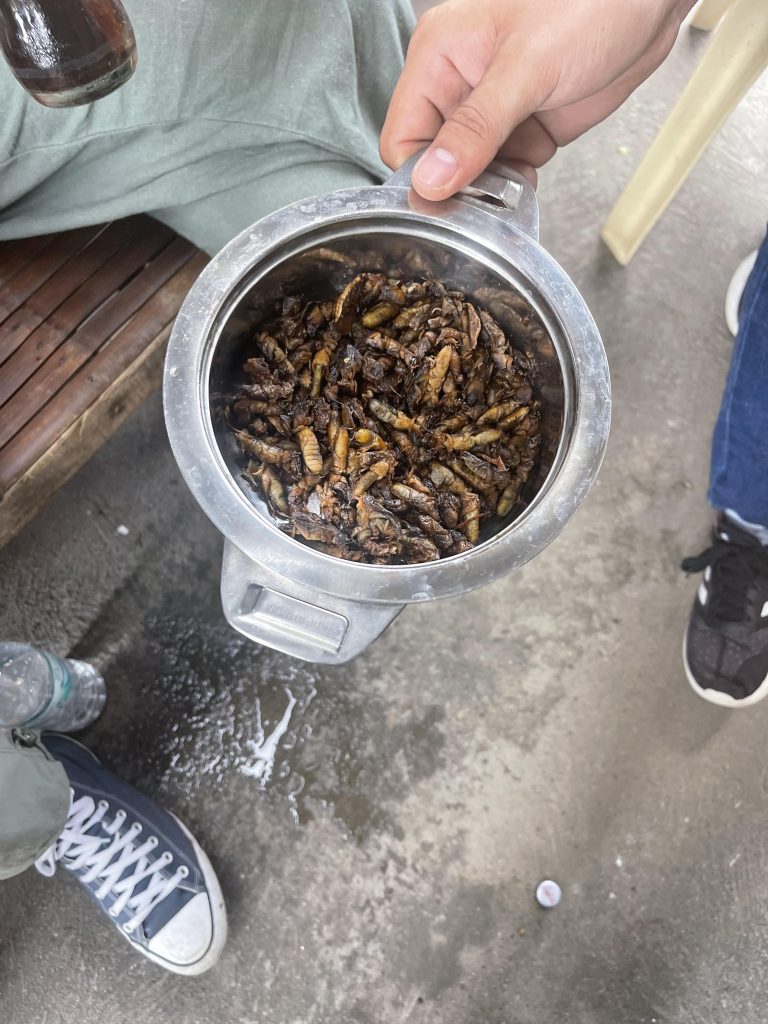
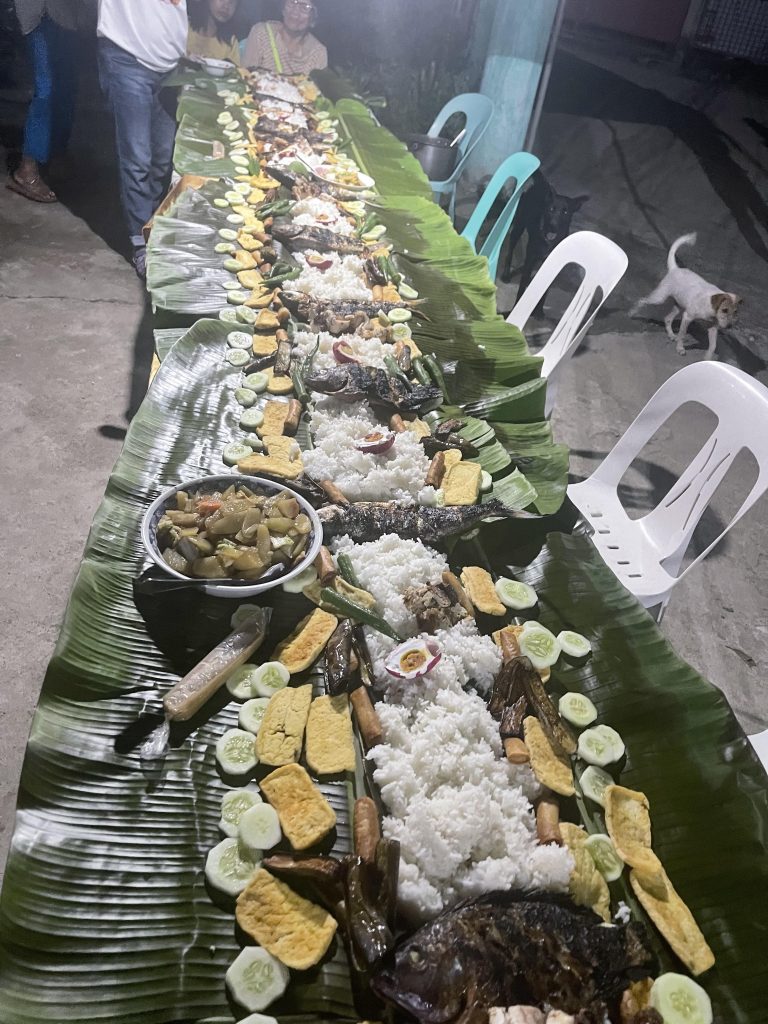
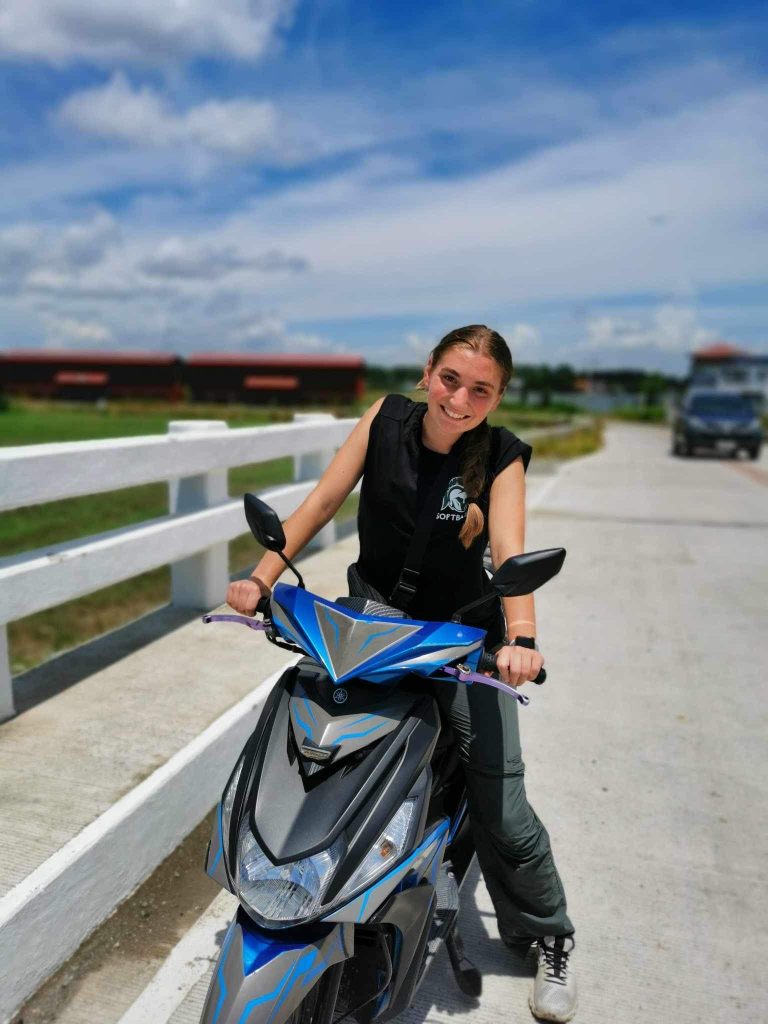
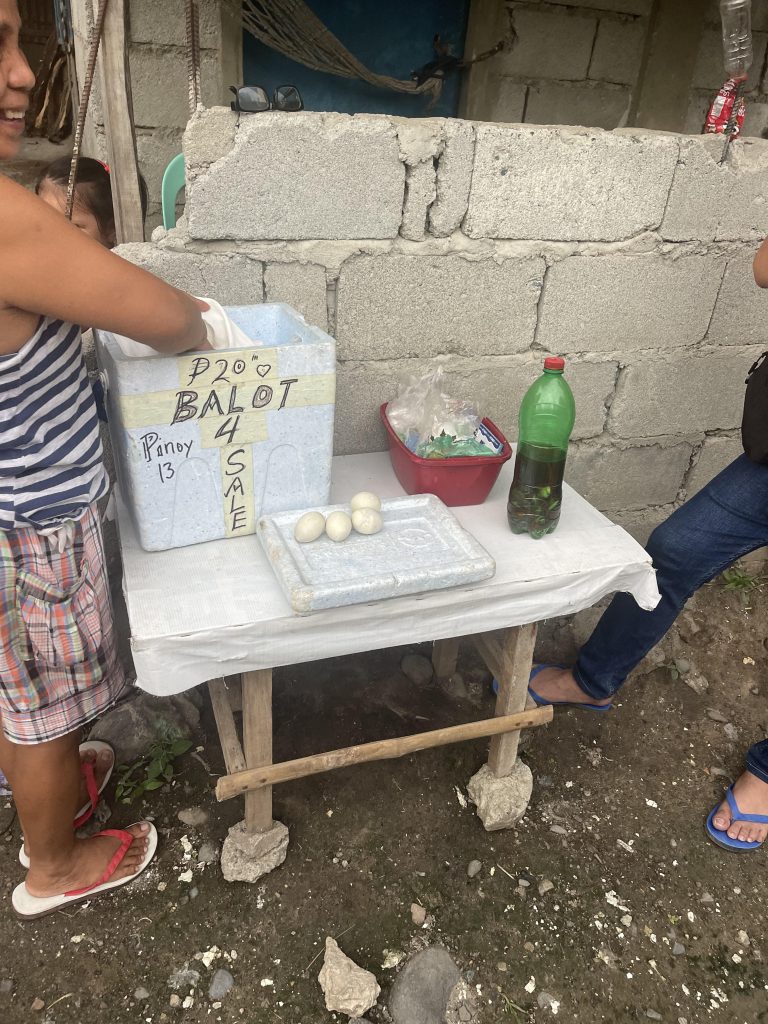
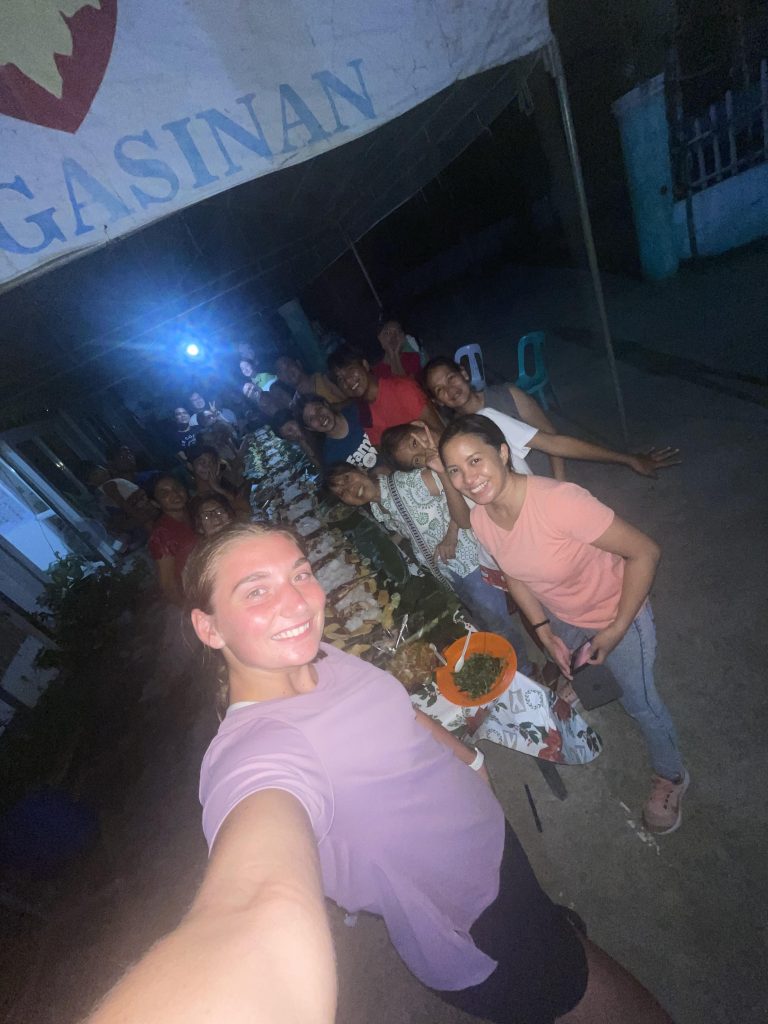
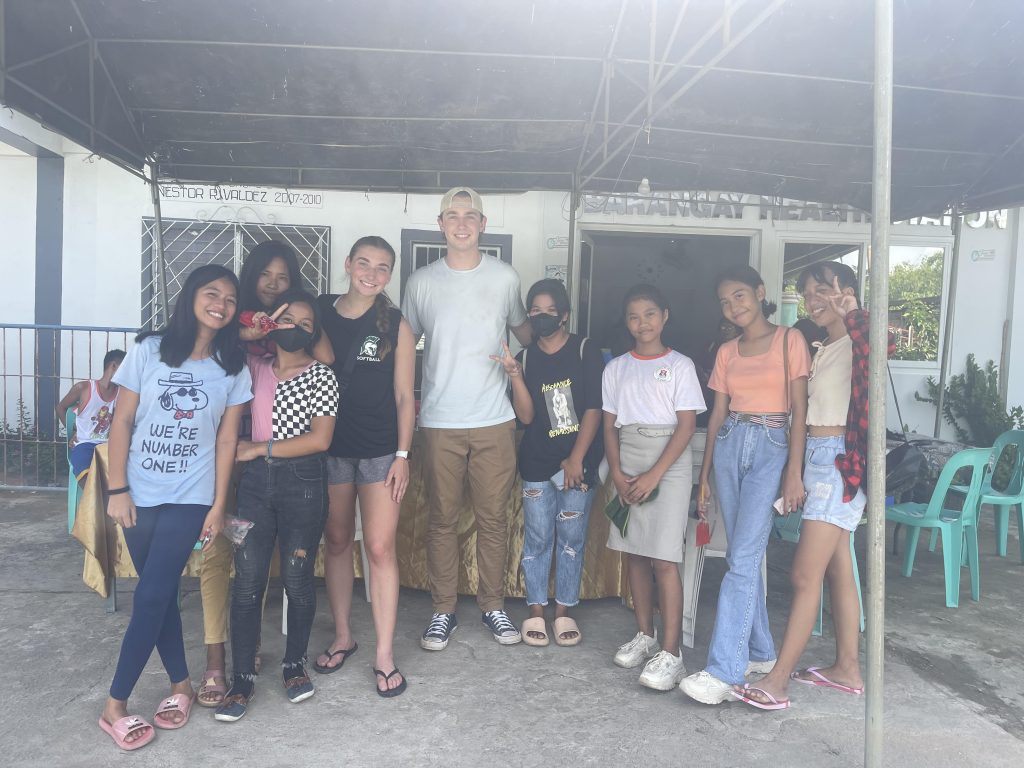
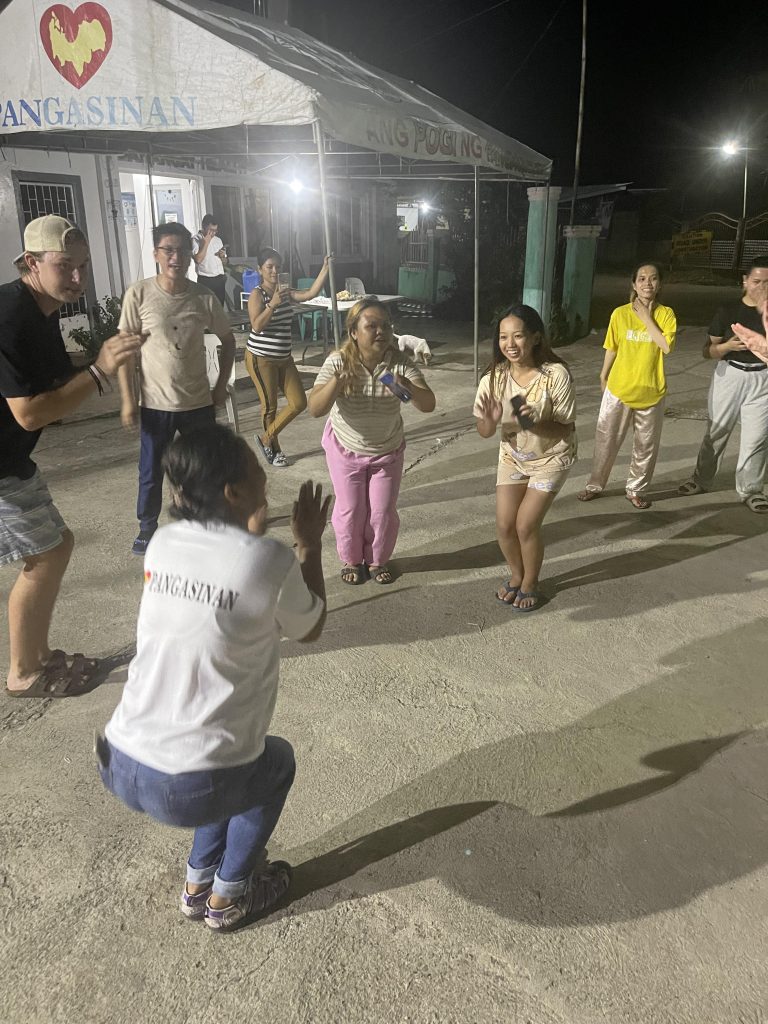
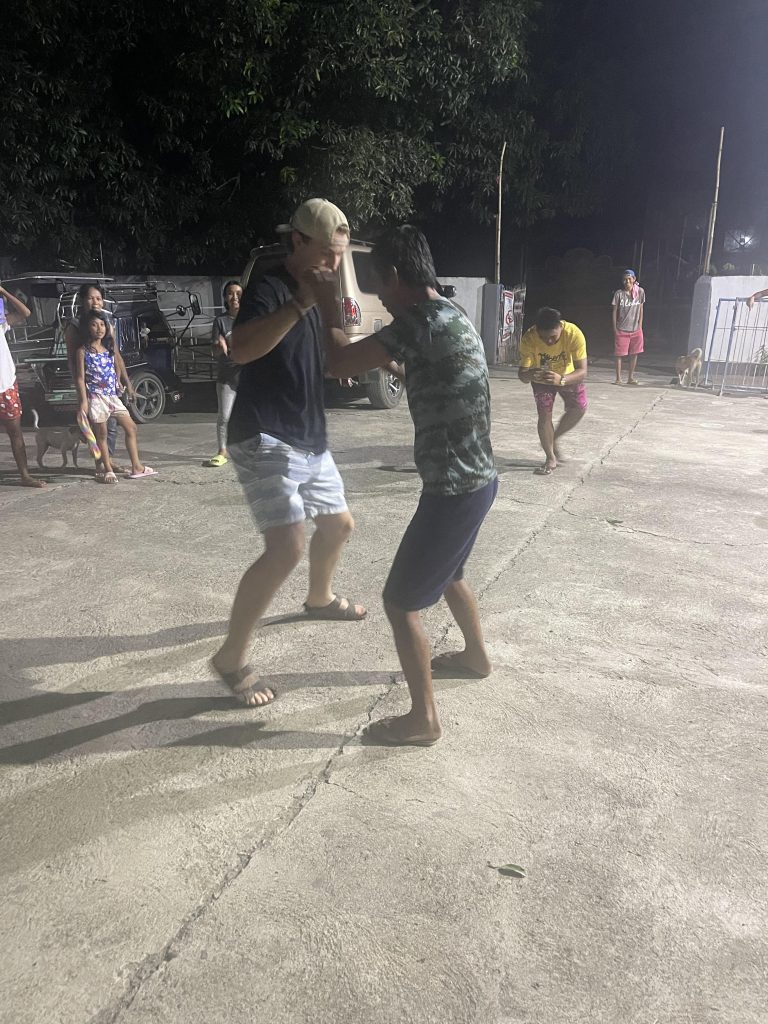
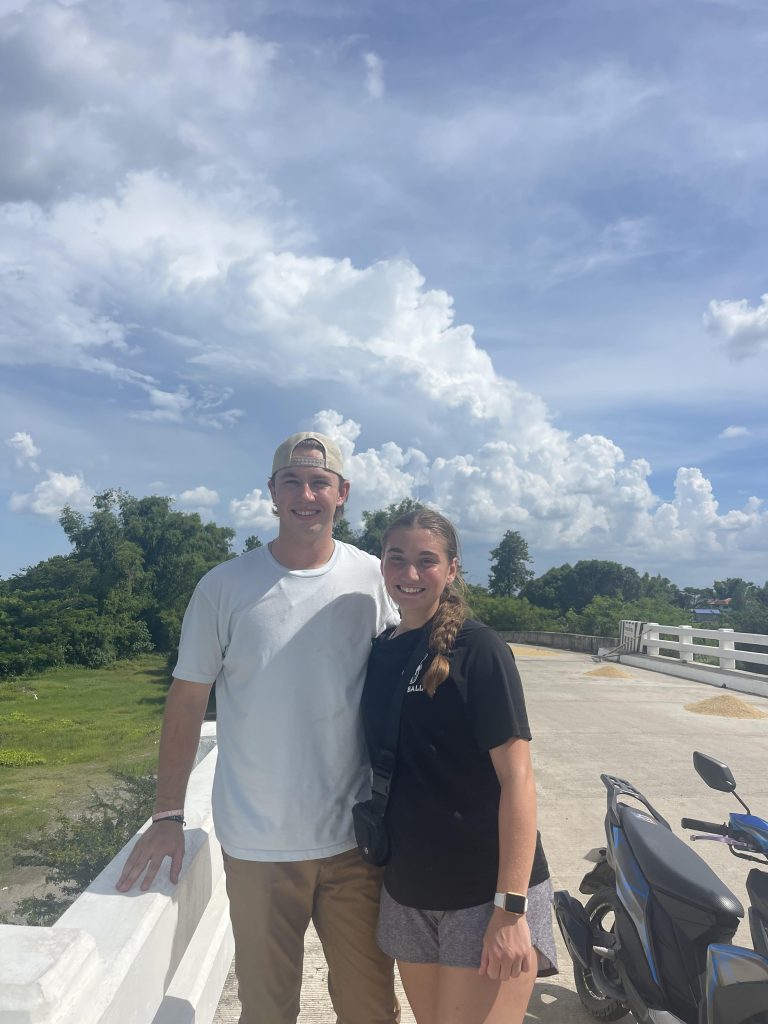
Overall, we had such a great time in Pangasinan. The people are truly inspiring and I loved being able to get to know them! They are so happy and have such a positive view on life. In Pangasinan specifically, most of the households have farms. We were even able to see herds of cattle being led down the street. I have started to get used to sleeping on the ground and taking bucket showers. For this field immersion, we had unlimited running water, so that was very nice! We also had air conditioning and 24 hour electricity. However, we did experience one power outage due to a storm. The respondents were also very willing to participate in the National Nutrition Survey and were happy to welcome us into their homes. Everyone that we met does their very best to communicate with us and start conversations even if they are hesitant to speak English. Overcoming the language barrier has been a challenge, but everyone we have met has been very patient with us and makes a genuine effort to include us and make conversation with us. This experience has been so eyeopening and has helped me to be more grateful for the lifestyle that I am able to live in the United States.
Next week, we will be attending the Annual Seminar Series in the Dusit Thani hotel for two days. Then, we will be traveling to El Nido, Palawan to meet some of our other friends from IWU and do some sightseeing.
